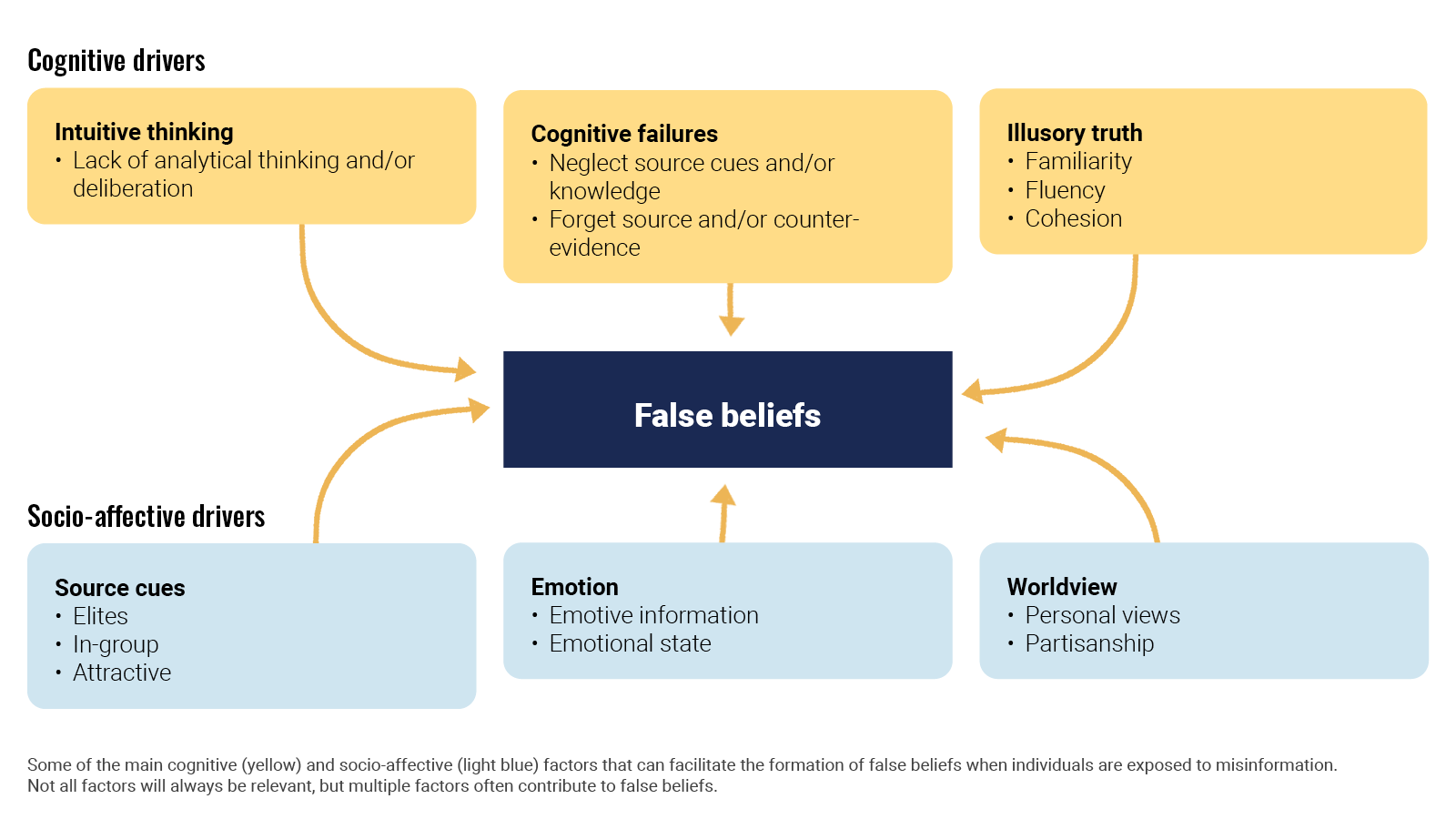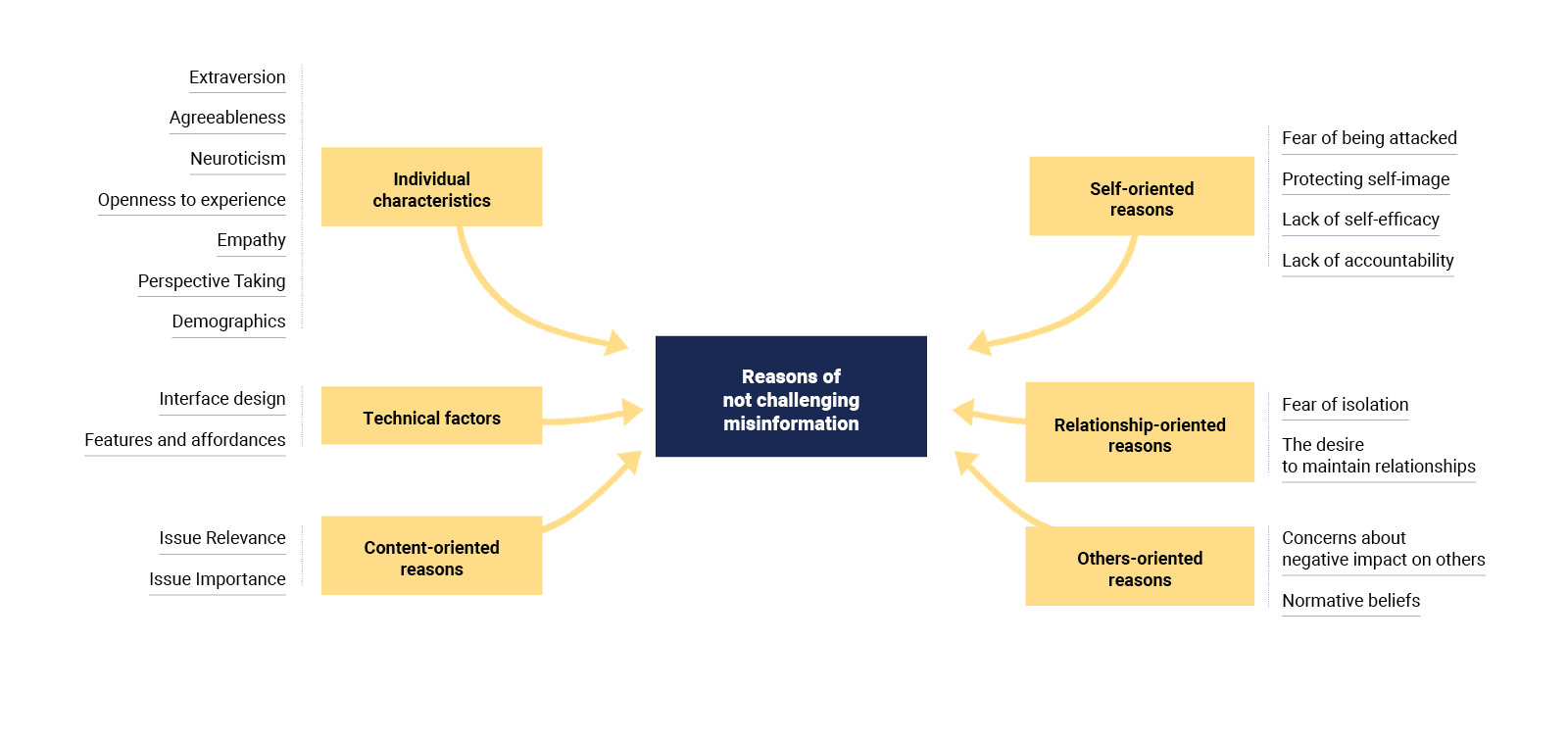To say that a lot has happened in 2022 is an understatement. Hovering above everything like a dark cloud is Russia’s unprovoked and unjustified war against Ukraine. To make sense of the year, many media outlets have compiled end-of-the-year recaps, best-ofs, and ‘listicles’. So have we. This piece will give you a brief overview of the state of play of academic research on everything related to information manipulation, including disinformation.
Table of Contents

Source — EUvsDiSiNFO — December 31, 2022 —
If we consider the sheer amount of academic research that contains the keyword ‘disinformation’, one of the more popular terms used in these discussions, we seem to have crossed a peak. Five years ago, in 2017, no more than 5,490 articles referred to disinformation, according to Google Scholar, the world’s largest repository of academic writing. By 2020, that number had grown to 16,500 and in 2021 it peaked at an impressive 23,200. That is nearly three academic papers every hour all year long. This year so far, we have seen around 17,800 pieces of research on the topic.

Here is our selection of disinfo-related research published in 2022. This list is neither a comprehensive nor a representative overview of all conducted research. Rather, it is our curation of some of the findings we deemed more interesting and useful.
Does information manipulation even work?
To be fair, disinformation did become too buzzwordy at one point. Journalists, think-tankers, analysts, policy-makers, politicians – everyone wanted in on it. Focusing attention on problems is good. Building superficial hype around them, not so much. But despite the peaking hype, disinformation as an issue is here to stay.
Still, after all these discussions, analyses, articles, and keynote speeches, not everyone believes that disinformation has a real-world negative impact. Looking at academic research on this specific aspect disinformation, there is surprisingly little of it. Although it is difficult to put a finger on the exact effect that information manipulation has on our societies and on us as individuals, it is not impossible.
Even if research on disinfo’s impact is far from conclusive, some traits can make an information manipulation operation’s success more likely. In a literature review for the Swedish Defence University, Claes Wallenius outlined four of them. First, the sender’s manipulative intent is hidden. Second, the sender’s antagonistic intent is hidden. Third, the message is not too distant from the receiver’s present view. And lastly, the message is constructed emotionally rather than rationally. If this sounds familiar, it is because Russia has been playing most of these cards for years.
A topic that is very often raised in discussions on foreign information manipulation is election interference. A group of scientists from Italian, Finnish and American universities studied the impact of misleading information on votes for populist parties in the Italian elections of 2018. They found that exposure to misleading information favours populist parties regardless of prior support for them, but also that this fact alone cannot explain most of populism’s growth.
It is all in our heads
The uptake of mis- and disinformation is intertwined with the way our minds work. The large body of research on the psychological aspects of information manipulation explains why.
In an article for Nature Review Psychology, Ullrich K. H. Ecker et al looked at the cognitive, social, and affective factors that lead people to form or even endorse misinformed views. Ironically enough, false beliefs generally arise through the same mechanisms that establish accurate beliefs. It is a mix of cognitive drivers like intuitive thinking and socio-affective drivers. When deciding what is true, people are often biased to believe in the validity of information and to trust their intuition instead of deliberating. Also, repetition increases belief in both misleading information and facts.

Ecker, U.K.H., Lewandowsky, S., Cook, J. et al. (2022). The psychological drivers of misinformation belief and its resistance to correction.
Going a step further, Álex Escolà-Gascón et al investigated the psychopathological profiles that characterise people prone to consuming misleading information. After running a number of tests on more than 1,400 volunteers, they concluded that people with high scores in schizotypy (a condition not too dissimilar from schizophrenia), paranoia, and histrionism (more commonly known as dramatic personality disorder) are more vulnerable to the negative effects of misleading information. People who do not detect misleading information also tend to be more anxious, suggestible, and vulnerable to strong emotions.
Unfortunately, even when people recognise misleading information online, many tend to remain inactive rather than challenging it. Selin Gurgun et al set out to understand why. Long story short, many possible reasons can account for online silence towards misleading information, but they fall under one of the six following categories: self-oriented, relationship-oriented, others-oriented, content-oriented, individual characteristics, and technical factors.

Gurgun, S., Arden-Close, E., Phalp, K. T., & Ali, R. (2023). Online silence: why do people not challenge others when posting misinformation?
Worse still, some people appear not only to believe misleading information, but also to condone misleading information they do not believe. In a piece(opens in a new tab) for Current Opinion in Psychology, Daniel A. Effron and Beth A. Helgason reviewed research on three psychological factors that encourage people to accept misinformation: partisanship, imagination, and repetition. In sum, partisanship may lower moral standards, imagination and partisanship can both make the broader meaning of the falsehood seem true, and repetition can blunt people’s negative reactions to falsehoods.
In search of solutions – from debunking to prebunking
Luckily, all is not doom and gloom. While disinformation is no laughing matter, humour can actually be an effective response it. Mark Boukes and Michael Hameleers conducted an experiment to compare the effects of regular fact-checks and satirist ones. They found that both fact-checking formats – factual and satirical – were equally effective in lowering agreement with and the perceived credibility of false information. Regular fact-checking was particularly effective among people who agreed with fact-checked information, while satirical fact-checking was equally effective across the board.
Despite their usefulness, fact-checking and debunking have some fundamental limitations. One is that debunking is reacting to something that has already happened. In other words, we are always a step behind the adversary. Another limitation is the difficulty fact-checkers face in trying to reach the same audiences targeted by malign actors in the first place. In response, researchers are now looking for ways to reach people before misleading information hits them.
One such approach is prebunking, or psychological inoculation. Academic heavyweights Jon Roozenbeek, Sander van der Linden et al put the theory to the test. Building on the results of seven studies with nearly 30,000 participants, the authors concluded that inoculation videos can help build psychological resistance against common manipulation techniques, including the use of excessively emotional language, incoherence, false dichotomies, scapegoating, and ad hominem attacks. Even more, they found that these videos are effective not only in a laboratory setting but also on a real-life video-sharing platform and can therefore be easily implemented at scale.
Where to next
If you are as much into information manipulation-related research as we are, keep an eye on our Twitter page, where we promote a new topical study (almost) every Sunday. But that is not all. We are currently working on a completely revamped Studies & Reports section on our website. Expect to hear news on this project in the next couple of months. Until then, enjoy the last moments of 2022 and have a great 2023!










